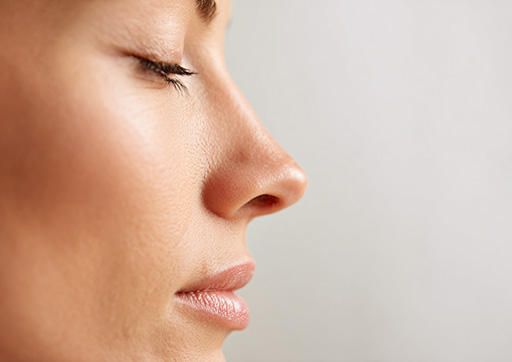Prioritize Lung Health Through Lifestyle Choices

Stop Smoking
If you use tobacco products, stopping is the most impactful step you can take for your lungs. Cigarette smoke irritates and narrows airways, making breathing harder. It also causes ongoing inflammation within the lungs, which can lead to lasting issues. The longer someone smokes, the more damage can occur, increasing the risk of serious respiratory problems.
Even being around others who smoke exposes you to harmful secondhand smoke, which can also negatively affect your respiratory system and make you more susceptible to infections. The good news is that your body begins to recover very quickly after you stop smoking, and the benefits continue to grow the longer you remain smoke-free.
Diet and Hydration
What you eat and drink plays a role in how your body functions, including your lungs. Your body converts food into energy, a process that relies on oxygen supplied by your lungs. A balanced diet provides the necessary nutrients for overall bodily functions. Staying well-hydrated is also important; drinking enough water can help keep the mucus in your airways thin, which can make breathing easier. When you’re dehydrated, this mucus can become thicker and stickier, potentially hindering respiration and making you more prone to illness or worsening allergies. Consider how your food choices and fluid intake support your body’s natural processes.
Practice Good Hygiene
Simple hygiene practices are a key defense in protecting your lungs from germs and irritants. Regularly washing your hands helps prevent the spread of infections that can affect your respiratory system. By minimizing your exposure to pathogens, you reduce the likelihood of experiencing respiratory illnesses that can put extra strain on your lungs. Maintaining cleanliness in your living and working spaces also contributes to better air quality, further supporting your lung health. These everyday actions are small but significant in safeguarding your respiratory well-being.
Enhance Lung Function with Physical Activity
Regular physical activity is a cornerstone of maintaining robust lung health. Engaging in aerobic exercises, such as brisk walking, cycling, or swimming, challenges your cardiovascular system and, by extension, your lungs. These activities increase your heart rate and breathing rate, prompting your lungs to work more efficiently to supply your body with oxygen. Over time, consistent aerobic activity can help your lungs become more adept at taking in air and delivering oxygen to your bloodstream, making everyday activities feel less taxing. Aiming for a consistent routine, perhaps 150 minutes of moderate-intensity aerobic activity per week, can make a noticeable difference in your respiratory well-being.
Strengthen Respiratory Muscles
Your ability to breathe effectively relies on a set of muscles, including your diaphragm and the muscles between your ribs. Physical activity, particularly exercises that require controlled breathing or sustained effort, helps to build the strength and endurance of these muscles. When your respiratory muscles are stronger, they can work more effectively to expand and contract your lungs, allowing for deeper breaths and a greater intake of air. This improved muscular function contributes to better overall lung capacity and can make breathing feel easier and more controlled.
Improve Oxygen Utilization
Beyond simply increasing the amount of air you take in, physical activity also trains your body to use that oxygen more effectively. When you exercise, your muscles demand more oxygen. Your body responds by becoming more efficient at transporting oxygen from your lungs to your tissues and at using that oxygen for energy. This improved efficiency means that your body can perform tasks with less effort, and your lungs don’t have to work as hard to meet your oxygen needs. It’s a process that benefits your entire body, from your brain to your toes.
Optimize Your Environment for Better Lung Health
Your indoor environment plays a significant role in your respiratory well-being, as people often spend a large portion of their time inside. It might be surprising to learn that indoor air can sometimes be more polluted than the air outside. Factors like secondhand smoke, chemicals found in cleaning products and building materials, and even mold can negatively affect the air you breathe. Taking steps to manage your indoor air quality is important. Regularly cleaning your living space, changing air filters in your HVAC system, and using ventilation when possible can make a difference. Consider using air purifiers, especially if you have sensitivities. Ensuring your home is a sanctuary for your lungs means being mindful of what you bring into it and how you maintain it.

Minimize Exposure to Outdoor Air Pollution
Outdoor air quality can fluctuate, and on certain days, it may not be ideal for breathing. Being aware of daily air quality reports can help you make informed decisions about your activities. On days with poor air quality, it is advisable to limit strenuous outdoor activities, especially in areas with heavy traffic. Checking resources like AirNow.gov can provide you with current air conditions in your region. Protecting your lungs from external pollutants involves making conscious choices about when and where you spend your time outdoors.
Master Breathing Techniques for Lung Capacity
Your lungs are remarkable organs, and like any part of your body, they benefit from specific attention to help them perform optimally. Simple breathing exercises can make a real difference in how well your lungs function. These practices are not just for those with existing breathing challenges; anyone can incorporate them to support their respiratory wellness.
Engage in Deep Breathing Exercises
Simple deep breathing exercises can help you utilize more of your lungs’ potential. When you inhale, consciously try to expand your belly, then your rib cage, and finally your upper chest. As you exhale, allow your chest to fall, then draw your abdominal muscles in. This full cycle of breathing helps to move more air in and out of your lungs, promoting better oxygen exchange.
Extend Inhalations and Exhalations
Another way to work on lung capacity is by gradually increasing the duration of your breaths. Start by noticing the natural length of your inhales and exhales. Then, try to slowly add a count to each phase, aiming for equal inhale and exhale times. The key is to do this gradually, without any strain or discomfort, allowing your lungs to adapt over time. This mindful approach to breath length can contribute to overall respiratory well-being.
Seek Professional Guidance
It is important to schedule regular visits with your healthcare provider. These appointments help in the early detection of potential issues, even when you feel perfectly fine. BioScan can provide detailed insight into your general health, allowing providers to identify potential concerns before symptoms become apparent. A proactive approach is particularly beneficial for lung health, as some conditions may not show obvious signs until they have progressed. Your doctor can assess your breathing and discuss any concerns you might have, helping to catch problems in their initial stages.
Stay Up-to-Date with Vaccinations
Vaccinations play a significant role in protecting against infectious respiratory illnesses that can spread from person to person. Keeping your immunizations current is a key step in preventing serious health complications, especially if you have existing lung concerns. Staying informed about recommended vaccines can help maintain your respiratory well-being.
Consider Pulmonary Rehabilitation Programs
For individuals experiencing challenges with their breathing, specialized programs can offer structured support. These programs often involve tailored exercise plans, educational sessions, and guidance to help improve physical strength and stamina. They can also provide emotional support and strategies for managing daily life.
Daily Habits and Lung Health
Paying attention to how your body feels during and after physical activity can offer insights into your lung function. When you engage in exercise, your lungs work harder to supply your body with the oxygen it needs. Noticing if you become unusually short of breath or experience discomfort can be an indicator. Over time, as your lungs become more efficient, you might find that you can sustain activity for longer periods without feeling winded. This responsiveness is a sign that your respiratory system is adapting and improving its capacity to deliver oxygen.
Recognize Symptoms of Lung Conditions
It is beneficial to be aware of common signs that might suggest your lungs are not functioning optimally. Persistent coughing, increased mucus production, or a feeling of tightness in your chest are signals that warrant attention. Sometimes, lung issues can develop gradually and may not be immediately obvious. Understanding these potential indicators allows you to seek advice from a healthcare professional if you have concerns, enabling earlier awareness and appropriate steps.
Promote Overall Well-being
Your daily routines and choices play a significant role in maintaining healthy lungs. Simple habits, like ensuring good indoor air quality by regular dusting and changing air filters, can make a difference. Similarly, being mindful of outdoor air quality and limiting exposure on days with poor air conditions is advisable. Staying hydrated also helps keep the mucus in your airways thin, which can make breathing easier. These consistent, small actions contribute to the long-term health and resilience of your respiratory system.

Frequently Asked Questions
What are the most effective ways to improve my lung health?
To boost your lung health, you should focus on several key areas. Quitting smoking is paramount, as is avoiding secondhand smoke. Maintaining a balanced diet and staying hydrated helps keep the mucus in your airways thin, making breathing easier. Regular physical activity, especially aerobic exercises, strengthens your lungs and improves how your body uses oxygen. Also, practicing deep breathing techniques can increase your lung capacity. Lastly, ensuring good indoor air quality and minimizing exposure to outdoor pollution are vital steps.
How does physical activity benefit my lungs?
Engaging in regular exercise makes your lungs and heart stronger. When you are active, your body needs more oxygen, so your lungs work harder. This consistent effort improves your lung capacity, meaning you can hold more air. It also makes your body more efficient at getting oxygen into your blood and sending it to your muscles. Over time, you might find you get less out of breath during everyday activities.
Why is it important to improve indoor air quality?
Indoor air can sometimes be more polluted than outdoor air. Things like dust, mold, cleaning chemicals, and especially secondhand smoke can irritate your airways and make breathing difficult. If you have existing lung conditions, poor indoor air quality can make them worse. Simple steps like regular dusting, changing air filters, and keeping your home smoke-free can make a big difference.
Should I see a doctor even if I feel fine?
Yes, it is wise to schedule regular check-ups with your healthcare provider. These visits help catch potential health problems early on, often before you notice any symptoms. Your doctor can also discuss any breathing concerns you might have and recommend appropriate preventive measures, such as vaccinations to protect against respiratory infections.
How does hydration affect my lungs?
Staying well-hydrated is important for your lungs because water helps keep the mucus lining in your airways thin. When this lining is thin, it functions better, and breathing becomes easier. If you become dehydrated, this mucus can become thicker and stickier, which can slow down your breathing and make you more likely to get sick or have worse allergy symptoms.
Your Respiratory Well-being
Taking care of your lungs is a lifelong commitment, and these strategies are your allies in this journey. By incorporating regular physical activity, practicing mindful breathing techniques, maintaining good hygiene, and being aware of your environment, you actively contribute to your respiratory health. Remember that consistent effort, even in small steps, makes a significant difference. Should you have concerns about your breathing or lung health, consulting with your healthcare provider is always the best course of action. Your lungs work tirelessly for you; it’s time to give them the care they deserve.



